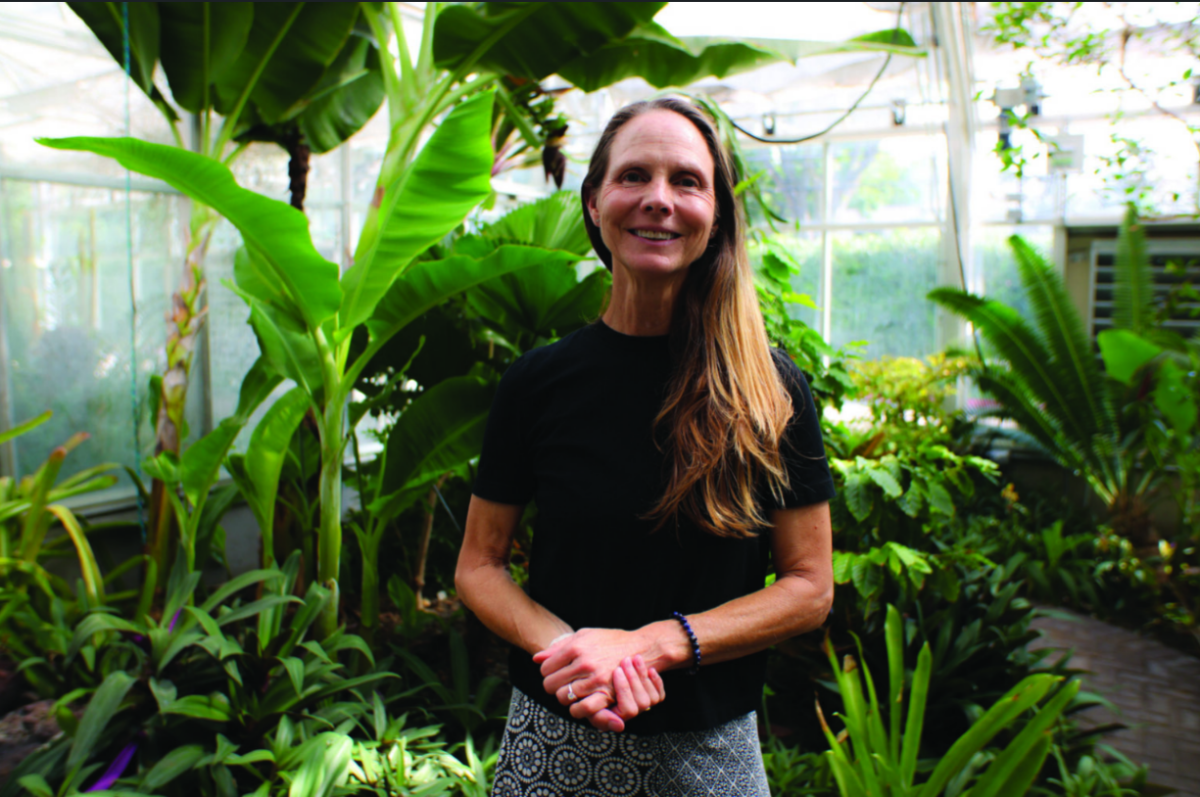
Photo Courtesy Mary May
Mary May brings international prestige and experience to the school campus and greenhouse.
Researcher. Teacher. Pioneer.
Builder of gardens.
Sustainability advocate.
Mary May’s journey to Dallas wasn’t linear. It started in a molecular biology lab, where she studied human genetics and immunology. She loved the work, but something about it left her restless.
“I realized I spent more time teaching people about my research than doing the research itself,” May said.
So she shifted. Back to school, this time for a master’s in teaching.
Then came 25 years overseas. Saudi Arabia. Qatar. Malaysia. Taiwan. Each country left a mark—not just on her passport, but on her teaching style.
In the Middle East, May’s classrooms brimmed with students from eight different nationalities, their debates lively, sometimes heated, but always curious.
In Taiwan, she was greeted with poised silence.
“All of a sudden, I realized there was a large culture around saving face and ensuring that your answer was correct. There was much less dialogue,” May said. “I had to convince them that I wouldn’t call on them until they were ready.”
She spent the first weeks of school coaxing her quiet students into trusting that a mistake wouldn’t mean a fall from grace.
Those cultural differences taught her to see science not just as formulas and labs, but as something deeply shaped by place—by people, traditions and the land itself.
But as she moved from country to country, another lesson pressed in—a lesson not from students, but from the world outside the classroom. Everywhere she went, she saw signs of strain: forests thinning, food systems breaking down, land pushed past its limits.
That steady exposure changed her. It raised questions of sustainability. It pushed her beyond the molecular microbiome she once loved and into the realm of the macroenvironment.
Eventually, she returned to school once more, earning another master’s—this time in sustainability, with a focus on food systems.
May’s classrooms became laboratories for something bigger than tests and labs. She piloted the first edible garden project in Saudi Arabia, carving garden beds into schoolyards of The KAUST School and teaching students how to plant and grow their own food.
A garden for everyone.
“You gained skills in how to plant, grow and take care of produce,” May said. “But you would learn basic cooking skills too that you use at home or bring to university. And what a gift that would be.”
For May, the lessons of the garden extend well beyond science. Teaching younger students how to plant, harvest, and care for the space naturally fosters leadership, while the willingness to dig in and do the work builds character. It’s a philosophy that mirrors the core principles the school holds at its center.
Now, she stands at the threshold of a new chapter at school. And for May, the most exciting part isn’t the AP environmental science curriculum or even her years of experience—it’s the school’s greenhouse.
She envisions a program stretching from first to 12th grade, where every student can step inside, touch soil, and see science alive before their eyes.
Science, she believes, is never meant to feel dry. It begins with a single question: what if?
What if we tried this experiment? What if the world worked differently? What if we could make it better?
That’s the kind of wonder May hopes to spark.